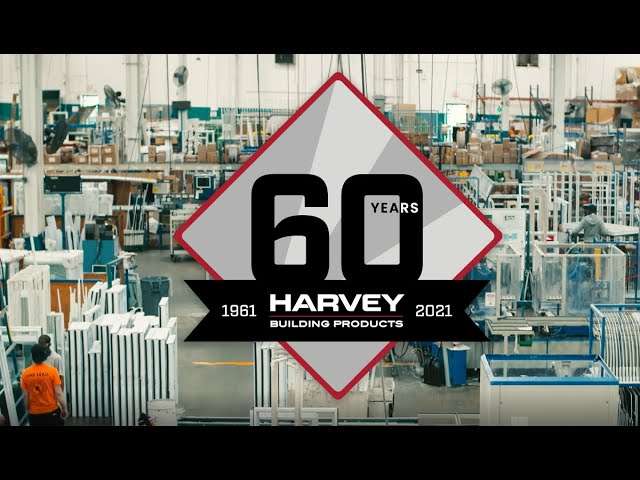The world of construction relies on a vast network of suppliers, and understanding their unique approaches is crucial for both professionals and homeowners․ Harvey Building Materials stands out as a provider with a specific focus, and it’s worth exploring what makes them different in the competitive landscape․ Their approach to customer service, product selection, and delivery logistics sets them apart․ This article delves into a fresh, unbiased perspective on Harvey Building Materials, offering insights you won’t find anywhere else․
Beyond the Basics: What Makes Harvey Different?
Many building material suppliers offer similar products, but the differentiating factor often lies in the details․ Harvey’s commitment to certain areas elevates the experience․ These may include:
- Specialized Product Lines: Focusing on specific niche product lines can create an expertise that general suppliers lack․
- Dedicated Customer Support: Going the extra mile to help customers find the right materials and troubleshoot issues is crucial․
- Efficient Delivery Systems: Ensuring timely and reliable delivery is paramount in keeping construction projects on schedule․
Navigating the Selection Process
Choosing the right building materials supplier involves careful consideration․ Here’s a breakdown of factors to consider, regardless of supplier:
- Product Quality: Ensuring the materials meet necessary standards and are durable․
- Pricing Transparency: Understanding the true cost, including delivery and any potential hidden fees․
- Availability and Lead Times: Confirming materials are in stock and delivery timelines align with project needs․
Comparing Harvey to the Competition
While a direct comparison table is difficult without specific competitor information and knowledge of Harvey’s internal operations, here’s a general comparison framework․ Remember to tailor it to your specific project needs and available suppliers․
| Feature | Harvey Building Materials (Hypothetical) | Competitor A (Hypothetical) | Competitor B (Hypothetical) |
|---|---|---|---|
| Specialized Product Lines | High (e․g․, Windows & Doors) | Medium (General Building Supplies) | Low (Primarily Lumber) |
| Customer Support | Excellent (Dedicated specialists) | Good (Standard support channels) | Fair (Limited support) |
| Delivery Speed | Fast (Local Focus) | Medium (Regional Coverage) | Slow (National Distribution) |
| Pricing | Competitive within specialty | Generally Lower | Generally Higher |
The Future of Building Material Supply
The construction industry is constantly evolving, and building material suppliers must adapt to stay relevant․ This includes embracing new technologies, sustainable practices, and innovative solutions․ The ability to meet demands is imperative for businesses to thrive․
Ultimately, selecting the right supplier is a critical decision․ Harvey Building Materials, with its potential focus on specialized products, customer service, and efficient delivery, could be a strong contender for your next project, but thorough research and comparisons are always recommended to ensure the best fit for your specific requirements․ By considering all of the above factors, you can be sure to get the best for your project․
Looking ahead, the role of building material suppliers like Harvey will likely become even more integrated into the entire construction process․ From initial design and planning stages to final installation, these companies will be expected to offer comprehensive support and expertise․ This shift necessitates a deeper understanding of emerging building technologies, sustainable construction methods, and the ever-changing regulatory landscape․
SUSTAINABILITY AND INNOVATION IN SUPPLY
The pressure to adopt sustainable practices is reshaping the building materials industry․ This trend is driven by increasing environmental awareness, stricter building codes, and growing demand for eco-friendly products․ Harvey, and other suppliers, need to prioritize sourcing materials from sustainable forests, promoting energy-efficient building solutions, and minimizing waste throughout their operations․
EMBRACING TECHNOLOGICAL ADVANCEMENTS
Technology is also playing a pivotal role in transforming the building materials supply chain․ Here are some key areas where innovation is making a significant impact:
– Digital Inventory Management: Real-time tracking of inventory levels ensures timely replenishment and reduces the risk of stockouts․
– Online Ordering Platforms: Streamlined online portals allow customers to easily browse products, place orders, and track deliveries․
– Building Information Modeling (BIM) Integration: BIM enables suppliers to provide detailed product information and specifications directly to architects and contractors, facilitating seamless project collaboration․
– Drone Delivery: Exploring the use of drones for delivering smaller materials to remote or hard-to-reach construction sites․
CUSTOMER-CENTRIC APPROACH: THE KEY TO SUCCESS
In an increasingly competitive market, building material suppliers must prioritize customer satisfaction above all else․ This means going beyond simply providing quality products and offering exceptional service at every touchpoint․ Key elements of a customer-centric approach include:
– Proactive Communication: Keeping customers informed about order status, delivery schedules, and any potential delays․
– Personalized Service: Tailoring product recommendations and solutions to meet the unique needs of each customer․
– Technical Support and Training: Providing expert guidance and training on product installation and usage․
– Feedback Mechanisms: Actively soliciting customer feedback and using it to improve products and services․
As we move forward, the building materials industry will continue to evolve at a rapid pace․ By embracing sustainability, leveraging technology, and prioritizing customer satisfaction, companies like Harvey Building Materials can position themselves for long-term success in this dynamic and vital sector․





